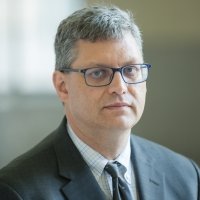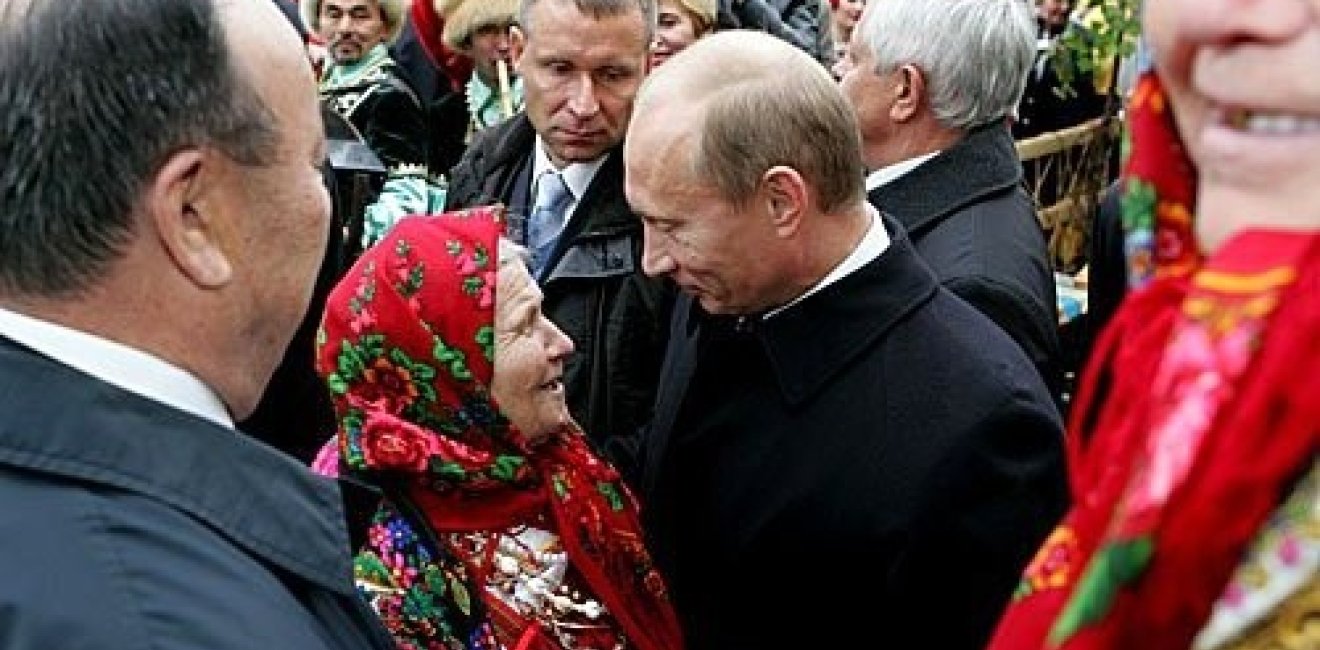
A blog of the Kennan Institute
BY MICHAEL CORBIN
In early May, shortly after President Putin was inaugurated for a fourth term, he signed a decree establishing national goals and strategic tasks for the development of the Russian Federation through 2024.
Pension reform efforts in Russia are nothing new, and pension reform is not a stand-alone topic but one once again pushed onto the front burner by the national goals decree. A big question underlying the proposed program is where the money will come from. The Russian Audit Chamber, now headed by former finance minister Alexei Kudrin, thinks the program can be funded out of existing budget revenues by reworking taxes. However, the Finance Ministry has proposed saving costs elsewhere in the budget by increasing the retirement age from the Soviet-era levels of 60 years for men and 55 years for women to 65 for men and 63 for women. The retirement age increase is projected to generate nearly 20 percent of the savings required to support funding of the program laid out in the May decree
This is a controversial proposal, to say the least. According to UN estimates, Russian men have a life expectancy of only 67 years—relatively low by global standards. The life expectancy for women is slightly better, at 77.1 years.
Nonetheless, the Finance Ministry’s proposal to raise the retirement age has already been introduced into the State Duma in bill form. The draft law is expected to be reviewed by the Duma by the close of the current spring session in July.
The proposal is almost uniformly viewed with disfavor by the public and by state workers (30 percent of Russia’s workforce employed by the state in one way or another). An earlier, 2015 VTSIOM opinion poll found that only 8 percent of respondents agreed with an incremental increase in the retirement age to 63, while 84 percent were “unlikely to support” such a measure. Insofar as current proposals to raise the full-pension-eligible age could reduce the number of pensioners from 40 million to 30 million by 2024, forcing some 10 million to remain in the workforce, these sentiments probably have not turned more positive.
Significant opposition to increasing the pension age has also been voiced by state employees in the Ministry of Defense, the FSB, and other municipal and federal interior affairs agencies. Currently, officers serving in these organizations are eligible to retire at age 45 and receive generous pensions for the rest of their life. They also represent a key base of support for the president.
President Putin was largely mum on the topic of raising the retirement age during previous terms, especially after his unsuccessful effort in 2005 to overhaul the country’s social welfare system. During that attempt, the government replaced some government-subsidized benefits with cash stipends. In response, hundreds of thousands of protesters, mostly retirees, blocked highways and thoroughfares and forced the government to step back from its proposed changes.
In December 2017, President Putin muddied the waters a bit by stating that any increase in the retirement age “would not be a rushed decision,” noting that “in many countries [reform] … is gradual and smooth … either every six months or every year.” His words are easily parsed as an attempt to potentially smooth the way for future policy action, steeped in hesitation.
His May decree does not mention the word pension, though the topic of supporting older workers can be inferred from references to life expectancy and population growth. Russia’s pension system simply is not in any condition to shoulder any further pressures, either fiscally or demographically. The Pension Fund of Russia (PFR), for example, is projected to see its deficit grow from 106.6 billion rubles to 257 billion rubles in 2018, year on year. A major factor contributing to the deficit will be a scheduled decrease in transfers from the central budget.
Demographics also weigh heavily against continuing the current pension system. Already the replacement ratio, the ratio of pensions to salaries, is extremely low by global standards. In 2016 it was 35 percent, and this figure is expected to fall to 32 percent by 2020—below the global norm of 40 percent advocated by the OECD and well below the 70–80 percent ratio of developed economies. Moreover, by 2050 the number of retirees in Russia is forecasted to be double the number of individuals in the workforce supporting them UN, World Population Prospects 2017).
Legislation around Russia’s economic budget crisis adds a third wrinkle to the unsustainable pension system problem. Payments to mandatory individual accounts, the darling of the pension reform efforts in 2001, have been frozen since 2013, and the moratorium on contributions has been extended to 2020. Any money going into the individual accounts has been retained by the government (the PFR) rather than directed to private pension fund managers. It is expected that the frozen mandatory individual accounts will be eliminated entirely by 2020 and replaced with voluntary individual retirement accounts. Contributions would be at the individual worker’s discretion at an expected rate of 1 to 6 percent of their annual salary.
First Deputy Prime Minister and Minister of Finance Anton Silyanov, who will be responsible for financial and economic issues in the new government, has indicated support for such a voluntary, worker-contributed system. At the recent St. Petersburg International Economic Forum (SPIEF), he commented: “We need to develop the contributory system to ensure decent pensions, and specifically, voluntary personal pension capital.” Russian Central Bank chair Elvira Nabiullina and Economic Minister Maxim Oreshkin expressed similar thoughts during the forum.
Pensions are often referred to as the third rail of politics, and Russia has clearly dug itself into a fiscal hole with respect to improving conditions for its pensioners. Reforms of some sort are clearly needed and are supported by significant members of the administration responsible for economic policy. The only question is whether the reforms will start during Putin’s fourth term or will be delayed until after the next election, in 2024, and have to proceed in an atmosphere of much greater political uncertainty.
Author

Senior International Trade Specialist, U.S. Department of Commerce

Kennan Institute
After more than 50 years as a vital part of the Wilson Center legacy, the Kennan Institute has become an independent think tank. You can find the current website for the Kennan Institute at kennaninstitute.org. Please look for future announcements about partnership activities between the Wilson Center and the Kennan Institute at Wilson Center Press Room. The Kennan Institute is the premier US center for advanced research on Eurasia and the oldest and largest regional program at the Woodrow Wilson International Center for Scholars. The Kennan Institute is committed to improving American understanding of Russia, Ukraine, Central Asia, the South Caucasus, and the surrounding region through research and exchange. Read more

Explore More in The Russia File
Browse The Russia File
Chechnya as a Model of Modern Russia

Russia’s Indigenous Communities and the War in Ukraine

Gas and Power in a Changing US–Russia Relationship

